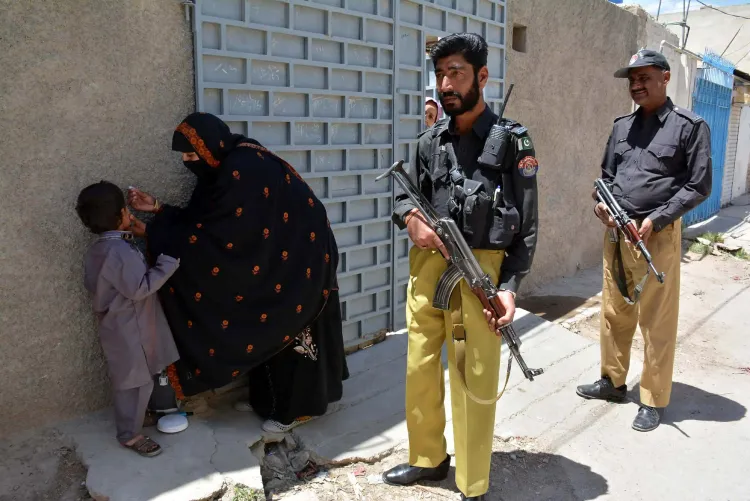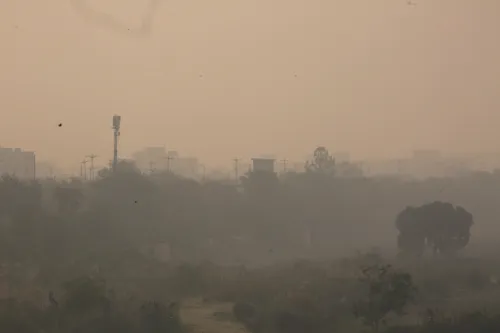Two Health Workers Kidnapped in Northwestern Pakistan

Synopsis
Key Takeaways
- Two health workers abducted in Khyber Pakhtunkhwa.
- Incident took place in Kulachi area of Dera Ismail Khan.
- Search operation launched by law enforcement.
- Polio workers often targeted in the region.
- Poliovirus detected in sewage samples from multiple districts.
Islamabad, April 15 (NationPress) Two health professionals linked to Pakistan's anti-polio initiative were seized by unidentified assailants in the northwestern Khyber Pakhtunkhwa province, according to police reports on Tuesday.
The abduction occurred in the Kulachi region of Dera Ismail Khan district, where armed individuals intercepted a passenger bus heading to Dera Ismail Khan and forcibly took the two workers—Raz Muhammad and Muhammad Asif—to an undisclosed location, as stated by a local police official.
The two individuals were returning from their official responsibilities related to the country's polio elimination efforts, police confirmed.
Authorities have initiated a search and rescue operation in the vicinity. As of now, no group has claimed responsibility for the kidnapping, as reported by Xinhua news agency.
Pakistan and Afghanistan are the only nations globally where the wild poliovirus continues to be endemic. Health workers involved in the polio campaign are frequently targeted, especially in the northwestern and southwestern regions.
A significant factor contributing to the virus's persistence is the widespread reluctance among the populace to vaccinate their children. Health workers focused on polio eradication have faced targeted attacks from militant factions opposed to vaccination efforts.
On Sunday, the Pakistan Polio Eradication Programme issued a statement indicating that poliovirus had been identified in sewage samples from 20 districts across Pakistan, following analyses from the Regional Reference Laboratory for Polio Eradication at the National Institute of Health (NIH).
The environmental samples, collected between March 5 and March 19, confirmed the presence of Wild Poliovirus type 1 (WPV1) in multiple locations.
"A total of 60 environmental samples were gathered from 51 districts during this timeframe. Out of these, 25 samples tested positive for poliovirus, while 35 were found to be negative," the statement elaborated.
The report further emphasized that while the detection of poliovirus in sewage is concerning, the number of positive samples has decreased, suggesting a decline in virus circulation in various areas.
The samples that confirmed the presence of wild poliovirus type 1 (WPV1) originated from districts such as Dukki, Kech, Khuzdar, Lasbela, Loralai, Nasirabad, Pishin, Quetta, Usta Muhammad, Bannu, Kohat, Lakki Marwat, Peshawar, South Waziristan Lower, Bahawalpur, Bahawalnagar, Dera Ghazi Khan, Lahore, Multan, and Rahim Yar Khan.









